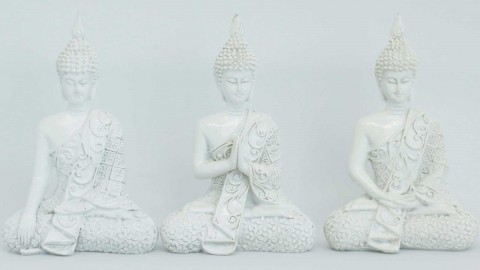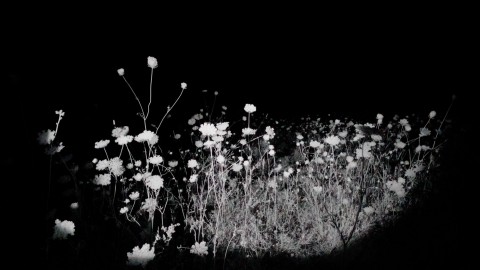A personality disorder is a type of mental disorder in which you have a rigid and unhealthy pattern of thinking, functioning and behaving. A person with a personality disorder has trouble perceiving and relating to situations and people. This causes significant problems and limitations in relationships, social activities, work and school.
Symptoms
Types of personality disorders are grouped into three clusters, based on similar characteristics and symptoms. Many people with one personality disorder also have signs and symptoms of at least one additional personality disorder.
Cluster A Personality Disorders
Cluster A personality disorders are characterized by odd, eccentric thinking or behavior.
They include paranoid personality disorder, schizoid personality disorder and schizotypal personality disorder.
Paranoid Personality Disorder
- Pervasive distrust and suspicion of others and their motives
- Unjustified belief that others are trying to harm or deceive you
- Unjustified suspicion of the loyalty or trustworthiness of others
- Hesitancy to confide in others due to unreasonable fear that others will use the information against you
- Perception of innocent remarks or nonthreatening situations as personal insults or attacks
- Angry or hostile reaction to perceived slights or insults
- Tendency to hold grudges
- Unjustified, recurrent suspicion that spouse or sexual partner is unfaithfulSchizoid personality disorder
- Lack of interest in social or personal relationships, preferring to be alone
- Limited range of emotional expression
- Inability to take pleasure in most activities
- Inability to pick up normal social cues
- Appearance of being cold or indifferent to others
- Little or no interest in having sex with another person
Schizotypal Personality Disorder
- Peculiar dress, thinking, beliefs, speech or behavior
- Odd perceptual experiences, such as hearing a voice whisper your name
- Flat emotions or inappropriate emotional responses
- Social anxiety and a lack of or discomfort with close relationships
- Indifferent, inappropriate or suspicious response to others
- “Magical thinking” – believing you can influence people and events with your thoughts
- Belief that certain casual incidents or events have hidden messages meant only for you
Cluster B Personality Disorders
Cluster B personality disorders are characterized by dramatic, overly emotional or unpredictable thinking or behavior. They include antisocial personality disorder, borderline personality disorder, histrionic personality disorder and narcissistic personality disorder.
Antisocial Personality Disorder
- Disregard for others’ needs or feelings
- Persistent lying, stealing, using aliases, conning others
- Recurring problems with the law
- Repeated violation of the rights of others• Aggressive, often violent behavior
- Disregard for the safety of self or others
- Impulsive behavior
- Consistently irresponsible
- Lack of remorse for behavior
Borderline Personality Disorder
- Impulsive and risky behavior, such as having unsafe sex, gambling or binge eating
- Unstable or fragile self-image
- Unstable and intense relationships
- Up and down moods, often as a reaction to interpersonal stress
- Suicidal behavior or threats of self-injury
- Intense fear of being alone or abandoned
- Ongoing feelings of emptiness
- Frequent, intense displays of anger
- Stress-related paranoia that comes and goes
Histrionic Personality Disorder
- Constantly seeking attention
- Excessively emotional, dramatic or sexually provocative to gain attention
- Speaks dramatically with strong opinions, but few facts or details to back them up
- Easily influenced by others
- Shallow, rapidly changing emotions
- Excessive concern with physical appearance
- Thinks relationships with others are closer than they really are
Narcissistic Personality Disorder
- Belief that you’re special and more important than others
- Fantasies about power, success and attractiveness
- Failure to recognize others’ needs and feelings
- Exaggeration of achievements or talents
- Expectation of constant praise and admiration
- Arrogance
- Unreasonable expectations of favors and advantages, often taking advantage of others
- Envy of others or belief that others envy you
Cluster C Personality Disorders
Cluster C personality disorders are characterized by anxious, fearful thinking or behavior. They include avoidant personality disorder, dependent personality disorder and obsessive-compulsive personality disorder.
Avoidant Personality Disorder
- Too sensitive to criticism or rejection
- Feeling inadequate, inferior or unattractive
- Avoidance of work activities that require interpersonal contact
- Socially inhibited, timid and isolated, avoiding new activities or meeting strangers
- Extreme shyness in social situations and personal relationships
- Fear of disapproval, embarrassment or ridicule
Dependent Personality Disorder
- Excessive dependence on others and feeling the need to be taken care of
- Submissive or clingy behavior toward others
- Fear of having to provide self-care or fend for yourself if left alone
- Lack of self-confidence, requiring excessive advice and reassurance from others to make even small decisions
- Difficulty starting or doing projects on your own due to lack of self-confidence
- Difficulty disagreeing with others, fearing disapproval
- Tolerance of poor or abusive treatment, even when other options are available
- Urgent need to start a new relationship when a close one has ended
Obsessive-Compulsive Personality Disorder
- Preoccupation with details, orderliness and rules
- Extreme perfectionism, resulting in dysfunction and distress when perfection is not achieved, such as feeling unable to finish a project because you don’t meet your own strict standards
- Desire to be in control of people, tasks and situations, and inability to delegate
- tasks
- Neglect of friends and enjoyable activities because of excessive commitment to work or a project
- Inability to discard broken or worthless objects
- Rigid and stubborn
- Inflexible about morality, ethics or values
- Tight, miserly control over budgeting and spending money
Causes
Personality is the combination of thoughts, emotions and behaviors that makes you unique. It’s the way you view, understand and relate to the outside world, as well as how you see yourself. Personality forms during childhood, shaped through an interaction of:
- Your genes. Certain personality traits may be passed on to you by your parents through inherited genes. These traits are sometimes called your temperament.
- Your environment. This involves the surroundings you grew up in, events that occurred, and relationships with family members and others.
Personality disorders are thought to be caused by a combination of these genetic and environmental influences. Your genes may make you vulnerable to developing a personality disorder, and a life situation may trigger the actual development.
Risk Factors
Although the precise cause of personality disorders is not known, certain factors seem to increase the risk of developing or triggering personality disorders, including:
- Family history of personality disorders or other mental illness
- Abusive, unstable or chaotic family life during childhood
- Being diagnosed with childhood conduct disorder
- Variations in brain chemistry and structure
Homoeopathic Treatment
- Aconitum: Sudden panic, great fear and anxiety, a fear of death but also fear of the future, physical and mental restlessness and agitation . irrational fears about the dark shadows, crossing a road recurrent fear full ideas about death or dying at a certain time.
- Argentum Nitricum: Apprehension before the event, melancholia, a lack of self confidence impulsive and wants to think in a hurry. A desire for sweet things. Do things in a hurry. Diarrhea comes on from fear.
- Calcarea Carb: Fears loss of reason and misfortune apprehensive.
- Gelsemium: Emotional excitement and fear lead to bodily illness, dull and listless, stage fright and examination fears
- Kali Carb: Fearful, hales, being alone
- Phosphorus: Multiple, phobias are experienced, very sensitive.
- Pulsatilla: A fear of being alone, the dark liking sympathy. May weep easily and be timid, moods are constantly changing a dependence on others. Alternating with anger and rage when criticised and of the dark one and the dark liking sympathy. May weep easily and be timid and irresolute.
- Apis Mellifica: Restless excitability, alternating with agitation and a conviction that death is imminent. Jealous
- Arsenicum Album: Time seems to pass too slowly alternating with restless frustration, great anxiety and unease aversion to being left alone restlessness and inability to stay in one place time seems to pass too slowly alternating with restlessness. Frustration
- Argentum Nitricum: Great anxiety and uneasy aversions to being left alone restlessness and inability to stay in one place a fear of heights of being in a crowded place. Great apprehension anticipating – a stressful occasion such as a driving test










